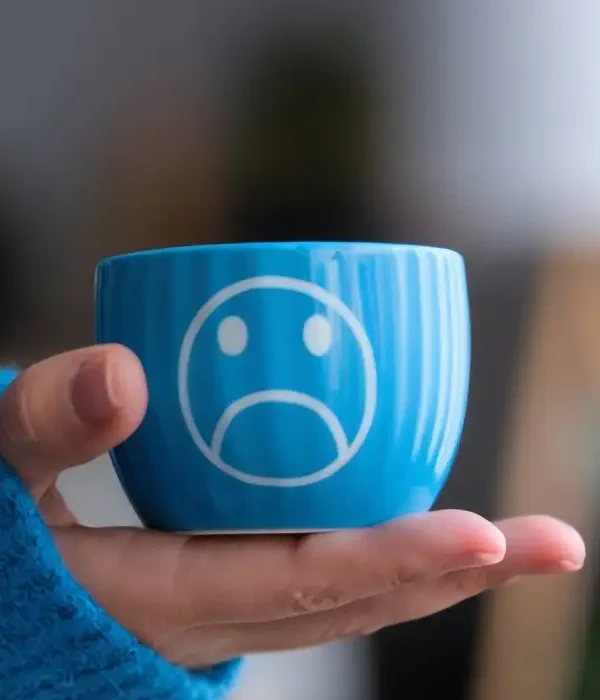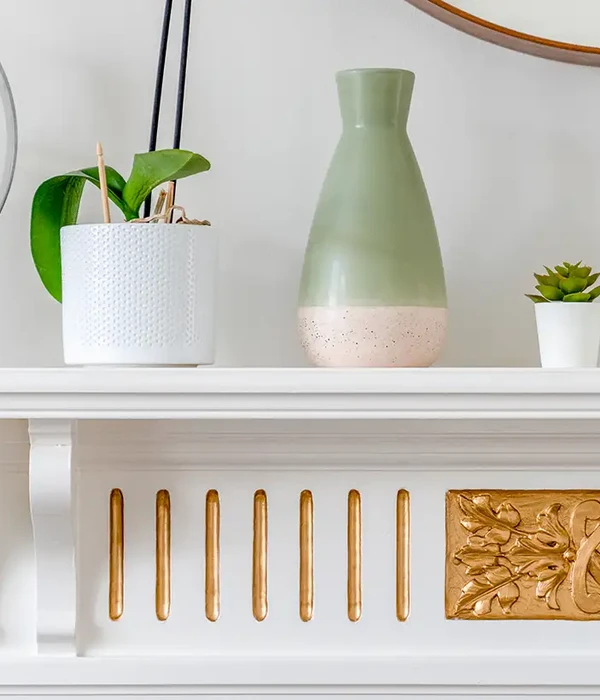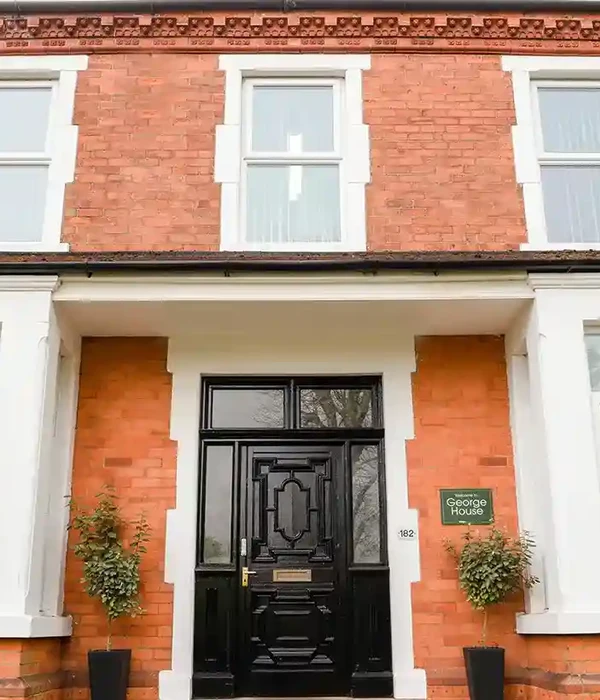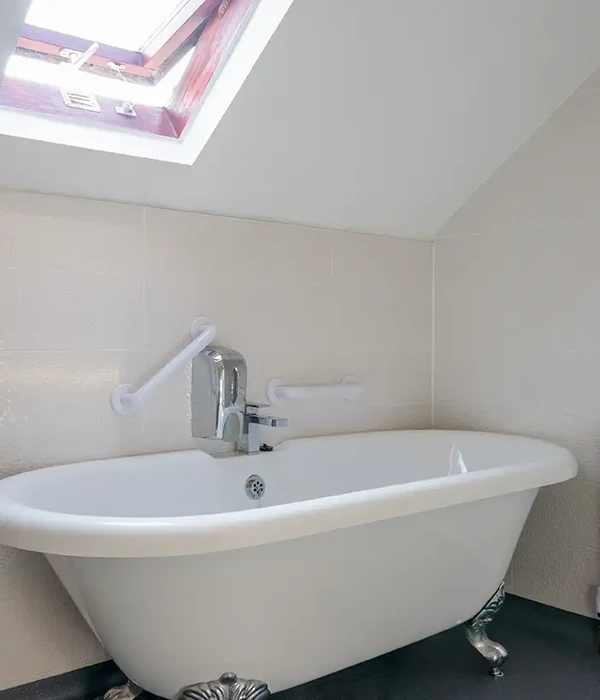Residential Rehab Treatment
Residential rehab treatment gives you a safe place to recover from addiction with 24/7 support and professional care. You can focus on your physical and mental health in a community, away from old triggers and daily stress. Support is always close, helping you make steady progress.
Many people find that inpatient alcohol and drug rehab is the best route on a recovery journey, especially when they need extra structure and daily support. By checking into a private rehab, you give yourself the chance to focus fully on getting better and start building a stronger future.

Take the First Step Towards Recovery
Steps Together offers personalised support and proven treatments, providing the care, guidance and encouragement you need to move forward with confidence and build a healthier future.

What Is Residential Rehab?
Residential rehab is a live-in addiction treatment programme for people facing behavioural addiction, substance abuse, or mental health disorders. You stay at the facility full-time and take part in therapy, daily routines, and medical support in a safe environment.
By living in a rehab centre for several weeks or even months, depending on what you need. Programs include group and individual counselling, activities to improve your health, and tools to help you build lasting habits.
Types of Residential Rehab Facilities
There are different types of residential rehab clinics. Some focus on short-term stays, usually around 28 days, while others offer programmes that last 60, 90 days, or even longer. These longer programmes provide you with more time to establish new habits and acquire skills for long-term recovery.
Standard facilities provide safe housing and structured programmes with group and individual therapy. Luxury or executive centres may offer private rooms, fitness centres, and extra amenities. Some centres specialise in treating co-occurring mental health disorders and other addictions.


Differences Between Residential and Outpatient Rehab
The primary difference between residential and outpatient rehab is where you reside while receiving treatment. In inpatient rehab, you stay onsite at the treatment centre and get round-the-clock care. You don’t have to manage outside stress or temptations during this time, allowing your focus to remain on recovery.
Outpatient rehab lets you live at home and visit a clinic for therapy and treatment sessions. This works well if you have a strong support system and mild or moderate addiction. Residential rehab is usually recommended if you have faced relapse after outpatient care or if you need constant supervision and a structured setting.
Addiction Treatment Approaches
Residential rehab programmes offer a structured approach to treatment that helps you manage both physical withdrawal and the everyday challenges of addiction. These methods use a mix of medical care,counselling , behavioural health therapies, and creative or holistic treatments.
Medical Detox
Medical alcohol or drug detox is often the first step in treatment for addiction. It provides a safe, supervised environment for your body to clear itself of drugs or alcohol. Medical professionals monitor you around the clock to manage withdrawal symptoms and catch any problems quickly.
Medical detox in a residential setting means you have quick access to both medical and emotional support. Early support like this helps set the stage for the next steps in treatment. You do not have to go through the hardest part alone.
Behavioural Therapies
Behavioural therapies focus on changing thoughts and actions that lead to substance use. Cognitive behavioural therapy (CBT) helps you spot and shift unhelpful thinking patterns. Dialectical behaviour therapy (DBT) teaches skills such as managing emotions and handling stress.
Contingency management rewards you for making healthy choices, such as attending sessions or maintaining a clean lifestyle. Many residential rehabilitation centres use a mix of these therapies to tailor care to your needs. These approaches give you practical tools that work in real life, and practising new behaviours in a controlled setting helps you develop better habits that last.
Individual and Group Counselling
Individual counselling gives you a private, trusted space to talk about your experiences and feelings with a trained therapist. This is your opportunity to set personal goals, develop coping skills, and explore the root causes of addiction.
Group counselling lets you share with and listen to others who are also in recovery. Professionals guide sessions and help you build trust, get feedback, and practise social skills. Both types of counselling are often included in residential rehab and provide tools you can use in daily life after you leave treatment.
Holistic Rehab Treatment
Holistic therapies look beyond just substance use and aim to improve your overall well-being. Techniques can include exercise, yoga, meditation, and art or music therapy. Some residential rehab centres may offer medical massage or even pet therapy, where spending time with trained animals can help lower stress.
These activities encourage you to explore healthy ways to manage emotions and cope with stress. They can make recovery feel more complete by supporting both mind and body. Many residential rehab programmes use a mix of traditional and alternative treatment options to support every part of drug and alcohol recovery.
Services that our multi-speciality addiction rehabilitation centres offer

Admission Process for Inpatient Addiction Rehab
Entering inpatient rehab is a guided journey, not just a quick check-in. The approach is personal, structured, and focused on giving you the strongest start in recovery.
Assessment and Evaluation
Inpatient treatment begins with a full assessment and evaluation. Health professionals will talk to you about your physical health, mental health, and substance use history. This part may also include questions about your family background, living situation, and any past attempts at treatment.
After your assessment, a treatment plan is made just for you. Staff will review your evaluation results to determine which services and therapies may be most beneficial for you. Your treatment plan usually covers therapy styles, medication needs, relapse prevention, and follow-up support.

Aftercare and Long-Term Recovery
A good transition plan provides a clear path once you have completed your programme. Your plan should include follow-up appointments, therapy sessions, and goals for the next few months. You will likely work with a counsellor or case manager to set up these steps before you leave.
Staying sober after rehab usually requires support that continues over time. Outpatient counselling, regular check-ins, and joining support groups offer structure and accountability. These services are a part of aftercare, which helps bridge the gap between inpatient addiction recovery and normal life.
Your family can play a big part in your recovery. Family therapy or education sessions teach loved ones about addiction and what they need for support. This can help reduce confusion and improve communication among family members at home.
What Inpatient Rehabs Treat
Inpatient rehab programmes offer the most intensive care for behavioural health concerns. The people who seek out residential treatment do so because their needs cannot be met by other forms of treatment, and they need the support
In residential treatment, you’ll receive constant care and support for a variety of concerns. These concerns may include:
Substance Use Disorders
Drug and alcohol addiction are conditions defined by a compulsive need to use substances despite suffering consequences. When a person has a substance use disorder, nothing takes precedence over their addiction, not even in their own wellbeing.
In residential rehab, you’ll be put in a controlled environment. Not only will you have no access to the substance to which you’re addicted, you’ll also be supervised by mental health professionals who will help you understand the causes of your alcohol or drug addiction as well as develop healthy coping skills to manage cravings.
Behavioural Addictions
Behavioural addictions, also called process addictions, are similar to substance addictions. The main distinction is that people who are affected are addicted to certain behaviours, such as gaming, gambling, or shopping, as opposed to drugs or alcohol.
By seeking out inpatient addiction rehabilitation, you’ll be in an environment where you won’t be judged for your addictions. Like inpatient alcohol and drug rehabilitation, you’ll learn to manage your compulsions and explore the reasons behind your addiction.
Mental Health Disorders
Mental health disorders, which may include trauma, anxiety, and depression, can all negatively impact the quality of your life. Your symptoms can take a toll on your relationships, hobbies, and work. Some people may even harm themselves as a result of their symptoms.
With residential treatment, you’ll be placed in a safe environment where you’ll be monitored by mental health professionals such as therapists and counsellors. You’ll be given space to discuss your feelings and learn about healthy ways to manage your symptoms.

We Can Help You Recover
Residential rehab can often be pivotal in overcoming alcohol addiction or drug addiction. At Steps Together, we can help you embark on a journey and build a life free from addiction. With ongoing support, you can break free from addiction.
With the intensive treatment and support found in residential treatment, you can begin building a new life that is not controlled by your compulsions. With inpatient rehab, you can retake control of your life.
Frequently Asked Questions
What services are provided in a residential rehabilitation programme?
You receive daily medical supervision, individual and group therapy, life skills training, and access to recreational activities. Most programmes include case management and planning for aftercare to support your return to regular life. Programmes can be tailored to specific needs, including addiction, dual diagnoses, or mental health issues.
What distinguishes a residential treatment facility from outpatient services?
In a residential facility, you live at the centre and get 24-hour support. This environment removes you from triggers and distractions at home. Outpatient care lets you live at home and visit the clinic for therapy sessions or medication. Residential treatment is usually better for severe addiction or when you need more structure and monitoring.
What therapies are commonly used in residential rehabilitation settings?
You will find several types of therapy, including cognitive-behavioural therapy, group therapy, family counselling, and sometimes medication as part of treatment. Many centres use recreational, art, or occupational therapy to support recovery. Individual counselling and relapse prevention strategies are also common.
How does the duration of stay in a residential rehab impact recovery?
The length of your stay can range from about two weeks to three months or more. Shorter programmes last 14 to 30 days, while longer ones can be up to 90 days. Longer stays often give you more time to learn new skills, stabilise health, and reduce the risk of relapse. The best duration depends on your condition and progress during treatment.
In what situations is residential rehabilitation recommended?
Residential rehab is often recommended when your addiction or mental health problem is severe, you’ve tried outpatient care without lasting success, or your environment at home is not safe or supportive. It’s also used when you need medical detox or have other health complications. If you struggle to stay sober on your own, this type of programme can help.
How are outcomes measured in residential rehabilitation centres?
Outcomes are usually measured by tracking progress during and after treatment. Staff may assess your ability to stay sober, improvements in mental health, changes in daily functioning, and your follow-through with aftercare plans. Many programmes also use feedback from you and your family to assess success and identify areas that need improvement.





